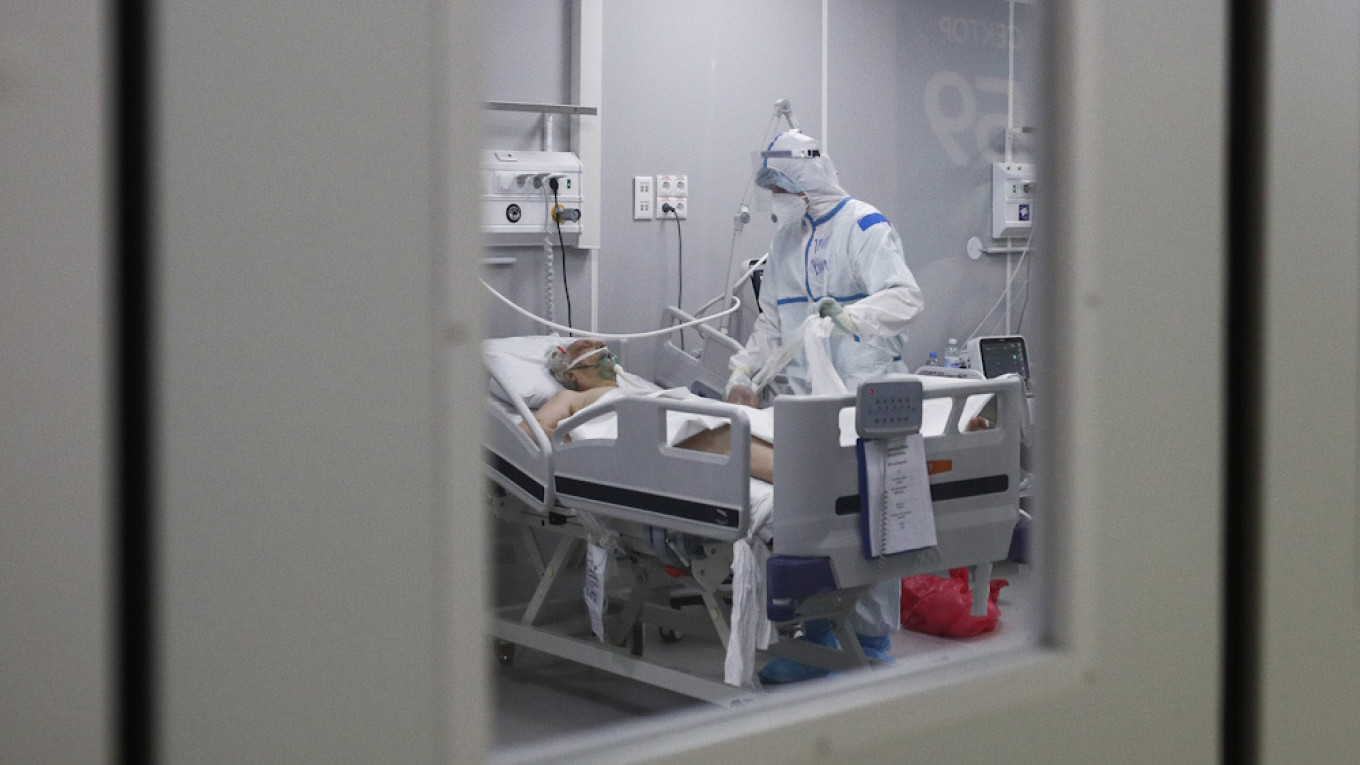Over 1,000 coronavirus infections in Russia involve one of three variants believed to be more contagious, the head of Russia’s consumer protection watchdog said Thursday.
The World Health Organization lists the SARS-CoV-2 mutations originating from Britain, India and South Africa as variants of concern but has not said that any of them are deadlier than the original SARS-CoV-2 strain.
Out of over 1,000 identified Covid-19 mutation cases in Russia, 70% are the British strain, 24% the Indian strain and 6% the South African strain, Rospotrebnadzor head Anna Popova was quoted as saying at the St. Petersburg International Economic Forum.
This means that Russia has at least 700 British strain infections, 240 Indian strain infections and 60 South African strain infections.
Russian authorities have claimed that the domestically-developed Sputnik V vaccine is effective at preventing the Indian strain. A U.S. study meanwhile has said that Sputnik V is significantly less effective against the South African variant.
In April, Sputnik V’s official Twitter account said the vaccine’s developer, the Russia-based Gamaleya Institute, would publish a peer-reviewed study on Sputnik’s efficacy against Covid-19 mutations by May, but it has not yet done so.
Popova has previously said that patients infected with the new coronavirus strains have not experienced different symptoms than those infected with the original SARS-CoV-2 strain.
Russia last month confirmed its first cases of the mutation that originated in India among a group of 130 first-year medical students from India who had arrived in Ulyanovsk in April. The Indian strain has since been found in Moscow, St. Petersburg and the Pskov region, the Izvestia newspaper reported, citing an epidemiological official.
A Message from The Moscow Times:
Dear readers,
We are facing unprecedented challenges. Russia's Prosecutor General's Office has designated The Moscow Times as an "undesirable" organization, criminalizing our work and putting our staff at risk of prosecution. This follows our earlier unjust labeling as a "foreign agent."
These actions are direct attempts to silence independent journalism in Russia. The authorities claim our work "discredits the decisions of the Russian leadership." We see things differently: we strive to provide accurate, unbiased reporting on Russia.
We, the journalists of The Moscow Times, refuse to be silenced. But to continue our work, we need your help.
Your support, no matter how small, makes a world of difference. If you can, please support us monthly starting from just $2. It's quick to set up, and every contribution makes a significant impact.
By supporting The Moscow Times, you're defending open, independent journalism in the face of repression. Thank you for standing with us.
Remind me later.






